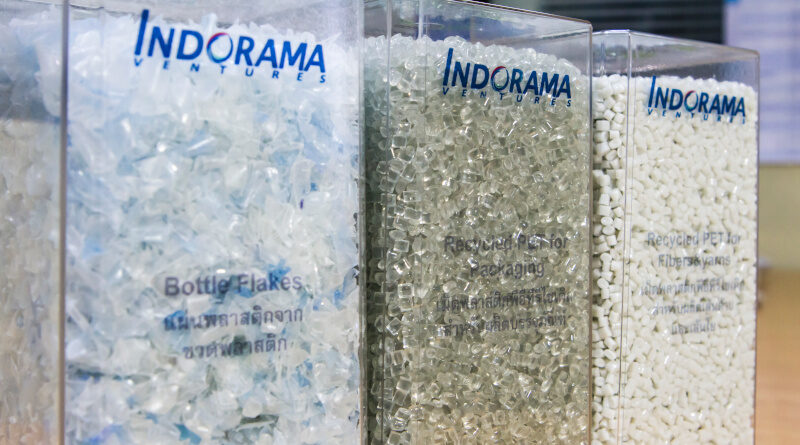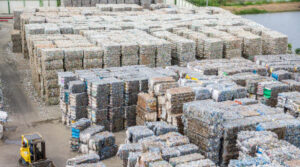Demand more from PET, less from the planet
Building the circular economy
According to the United Nations’ “Baseline Report on Plastic Waste”, published in 2020, PET is currently the most recycled plastic in the world. Its share of the recycled market is likely to increase, as the world adopts a shared responsibility approach to waste management. Mismanagement of post-consumer materials and contamination are challenging the supply of feedstocks but more investment in recycling infrastructure is already underway. Investment in advanced and monomer/chemically recycled volumes over the coming decade will see collection of post-consumer beverage bottles reach up to 90%, in regions with proper collection systems.
Indorama Ventures’ (IVL) new purpose statement – Reimagining chemistry together to create a better world – reflects the key elements of its Vision 2030 plan. It maps out the route by which both bio-based-renewable and recycled feedstocks are intended to deliver reduced emissions, divert waste from the environment and build circular manufacturing.
Vision 2030 will see IVL invest up to US $ 8 bn to increase biomass to 2.4 mn tons and recycled to 1.5 mn. Indorama Ventures Investments & Holdings (IVIH) has been created to identify, invest and deliver those objectives. IVL has set a goal to recycle 50 bn PET beverage bottles annually by 2025.
These objectives are very much in line with consumer demands for sustainable and recyclable materials and global brands’ targets for increased recycled content. Many governments already have plans to collect 90% of post-consumer PET bottles. Recycling of PET bottles is already at scale, across many countries.
Even through the Covid-19 pandemic, IVL added to its portfolio of recycling facilities in Europe, the Americas and Asia, with the acquisition of assets in Brazil, Poland, Texas and the Czech Republic, where recycling capacity is planned to be increased to over 1 bn bottles/a by 2025. In the USA, IVL is increasing bottle washing capacity to 43,000 t/a. In partnership with Coca-Cola Beverages Philippines, it opened a new PET Value bottle-to-bottle recycling plant.
These investments have cemented IVL’s position as the world’s largest producer of recycled resin for beverage bottles.
The company is also operating beyond bottles: IVL and partners are collaborating to develop technologies to recycle PET trays. Today, 500 t of PET trays are being processed monthly.
Science based targets initiative
The Science Based Targets initiative (SBTi), a collaboration between CDP, the United Nations Global Compact, the World Resources Institute and the World-Wide Fund for Nature, helps businesses set emissions reduction targets based on the most recent climate science. IVL’s sustainability strategy, to reduce greenhouse gas intensity by 30%, increase its use of renewable energy and implement new decarbonisation technologies including carbon capture, is in alignment with SBTi.
Brand platform
Deja is IVL’s new brand platform for global, low carbon, high performance PET, rPET and polymer. The brand covers carbon neutral virgin and recycled PET resins and a range of rPET products, including flakes, resins, fibers, and yarns. Applications include packaging, lifestyle, apparel, automotive and medical equipment.
It is claimed to give converters credibility, accreditation to retailers and assurances of sustainability to end consumers. Deja “demands more from PET and less from the planet”, by recycling and transforming PET into innovative ingredient products, across multiple applications.
In 2022, IVL was presented with Chemical Week Sustainability Awards’ Best Sustainable Product Award for Deja Carbon Neutral pellets, virgin PET resins achieve a carbon-neutral final carbon footprint through the use of recycled water, low-impact water transport and recycled feedstocks. IVL partnered with South Pole, a leading provider of global climate solutions, to offset unavoidable emissions with carbon credits.


